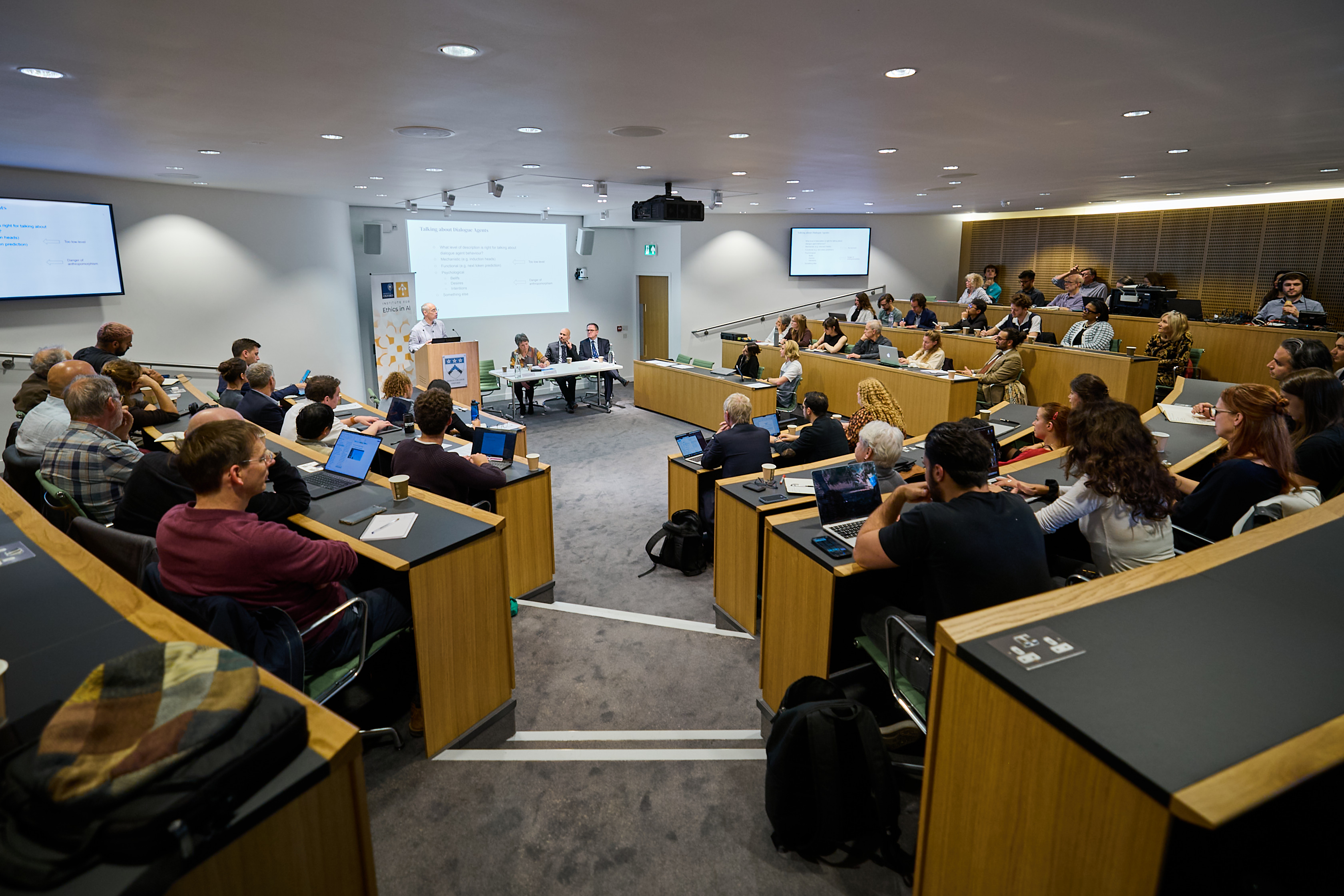
On Thursday 17 October, the Institute hosted its first colloquium of the academic year. Our main speaker was Murray Shanahan, Professor of Cognitive Robotics at Imperial College London. Professor Shanahan spoke about how we should think and talk about Large Language Models (LLMs), and the chatbots they undergird. Do they understand, think, believe, and deceive? Or are they doing something less human-like?
Shanahan began by considering the different levels of description we might apply to LLMs. We might talk in detail about the architecture of a neural network, its layers, induction heads, and so on. We might talk about what they do in terms of (for example) next-token prediction. However, these “low-level” descriptions do not seem entirely adequate. When we interact with LLM-powered chatbots, it is natural to apply higher-level, psychological descriptions. We say they believe, desire, intend, know, etc. But such higher-level descriptions risk anthropomorphising these systems, by ascribing human attributes to them that they do not really have.
Shanahan’s proposal is that we understand LLMs and the associated chatbots as engaging in role-play. We should hesitate to say they believe, desire, and so on. That is because they do not participate in our world the way a human does, and they do not exhibit the kind of stability what they affirm that human believers and desirers do. However, we can say that they role-play characters that believe, desire, intend, and so on. An LLM-powered chatbot does not role-play a single character with fixed attributes. Rather, at any point in a conversation, the chatbot is role-playing a “distribution or superposition” of characters that fit with the conversation to that point. Chatbots might not be able to deceive deliberately, but they can role-play characters that do. They sometimes appear introspective and self-aware, but we can understand these appearances as the chatbot role-playing self-knowledge.
The commentators were Anita Avramides, Emeritus Fellow in Philosophy at St Hilda’s College, Oxford, and Rahul Santhanam, Professor of Computer Science at Oxford and a Tutorial Fellow at Magdalen College. Avramides pressed Shanahan on whether an LLM or an associated chatbot could, in principle, participate in our world in a way that enables them literally to believe, desire, intend, and know. We need to say more about what these systems lack in terms of participation in our world, in order to assess whether they could one day participate in the way required. Avramides also emphasised that in assessing and describing LLMs and associated systems, we need to consider what is valuable about what humans do. We should not “sell our words cheap” by ascribing psychological attributes to systems that are merely “good enough”.
Santhanam agreed that we should be careful about anthropomorphising LLMs by ascribing (e.g.) beliefs and intentions to them, but questioned whether the notion of role-playing provides a satisfactory alternative. The problem is that role-playing itself might require complex psychological states like beliefs and intentions. Reasons to avoid ascribing such states to LLMs might also be reasons to avoid ascribing role-playing to them. Santhanam also questioned where the boundary is between role-playing something and actually doing it. He suggested that chess computers really do play chess, and can even know the best move to take. Similarly, maybe an LLM really can know things. The discussion underlined the difficulty of describing what LLMs do: it is hard to avoid anthropomorphising, or at least applying human psychological words to them metaphorically.
